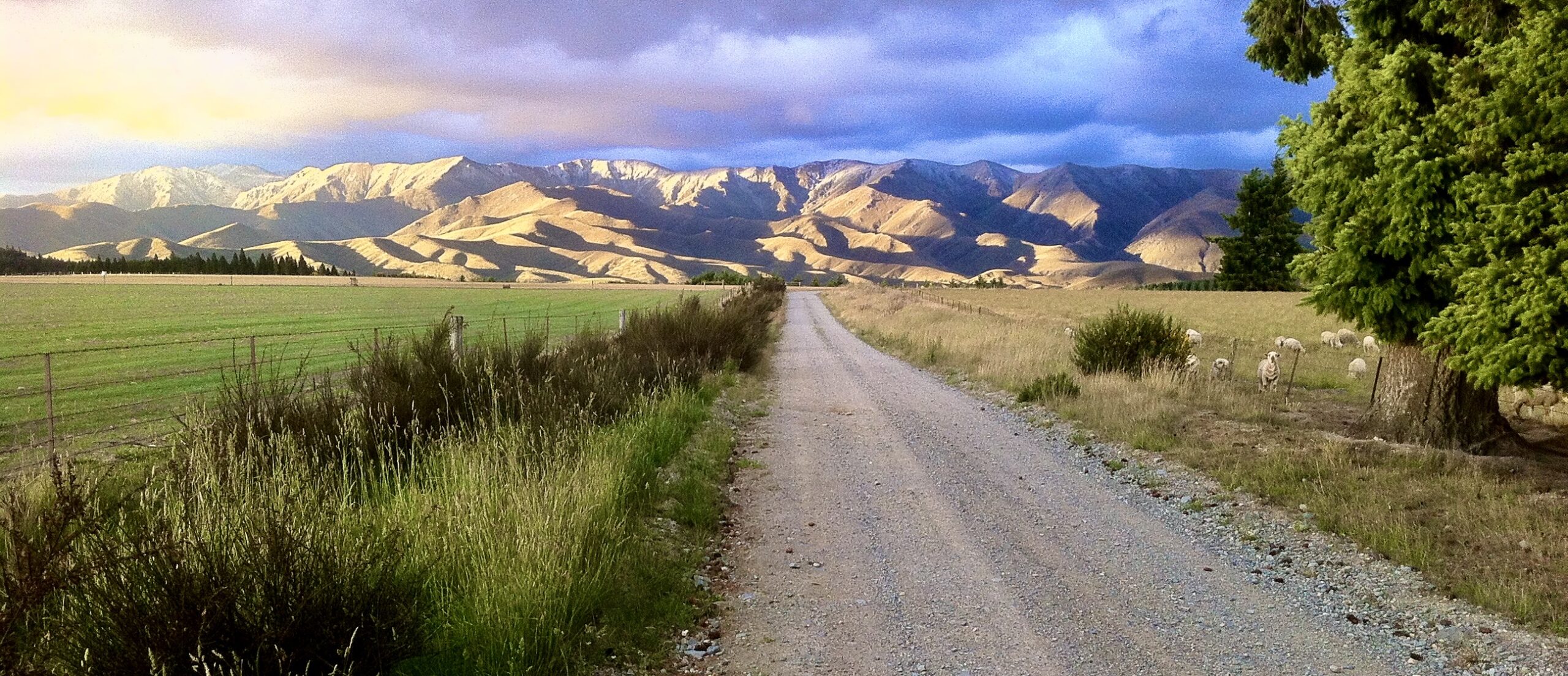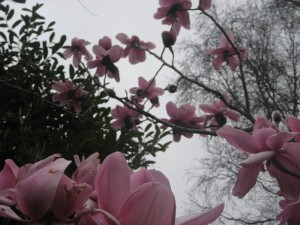
We were hoeing into a lovely mess of eggs and tomato on toast just before one o’clock last Tuesday, when the tin shed we’d been holidaying in suddenly leaped east, west, east again, and made a long shuddering, swinging sigh. Perched on a stool beside the fire, I set my plate on the table and laughed as R hot-footed for the doorway. A bottle with candle dropped from the mantelpiece and the dog looked at me.
Must be the newly opened Waikuku fault-line jostling underfoot, we decided. I finished my lunch and let Polly lick the plate. There were a few more boomph-judder-judders over the next hour as we packed our bags, as intended, and prepared to drive the 20 minutes into Christchurch. Then our daughter rang on the cellphone, from Auckland. ‘Where are you both? Are you okay?’ and my brother in Christchurch texted: ‘As big as the first one but more damage’.
My brother’s home was a hub of calm and commonsense for streams of visitors. He dispensed warm welcomes, chai, and food from the fire in the garden, while hunting down a lost colleague by phone; meanwhile my sister-in-law had biked away into the city to exercise her own brand of calm strength and life-saving medical skills in the most challenging of circumstances.
Other family members have been harder hit; two are down south with us — but all are coming to the common realisation in this disaster: whatever was lost, we’re alive and we have one another. Of course not all the beloved others are alive, and that’s where the pain and guilt lie — for almost everyone I’ve talked to. The question scrapes at even those who have escaped by the skin of their teeth: why am I so ‘lucky’? Why do I still have my life/home/livelihood?
Well, that’s the question of all our lives, pressed home with force by the earthquake. Some will make radical changes of direction — the fabric of our NZ society has been torn, and is already being stitched into new configurations, as teams and helpers fly into Christchurch and families leave the city in droves — and others will deepen their commitment to the course they’re on.
Those of us whose lives are substantially undisturbed wonder how we should help. I think that until we have a clear sense of direction about that, we’re best to go on with our daily tasks, as fully and happily and healthily as we can. We will be called upon — whether to listen, or house, contribute, or actively help — but in the meantime, the more love and calm and well-being we can generate and share from our own homes, the more we have to offer when we visit those careworn and depleted, or when they come to us.
At times like this, we find ourselves in one another’s arms. At least for a little while, neighbours meet and hold one another; family rifts are bridged; compassion overcomes reserve. Like the animals in the photo above, we may be surprised at our new alliances, but I dare say they’re exactly right for now. These are privileged hours of vulnerability; let’s hope we can come away from them with bigger hearts.

























